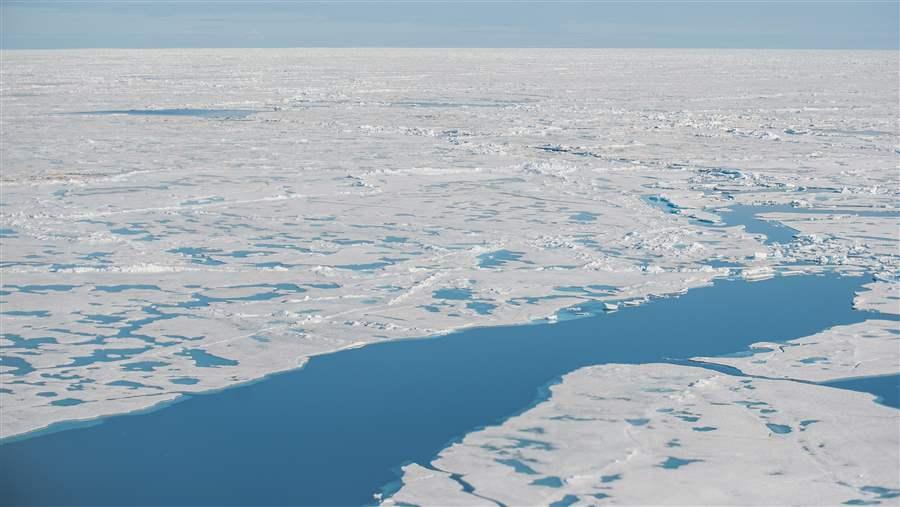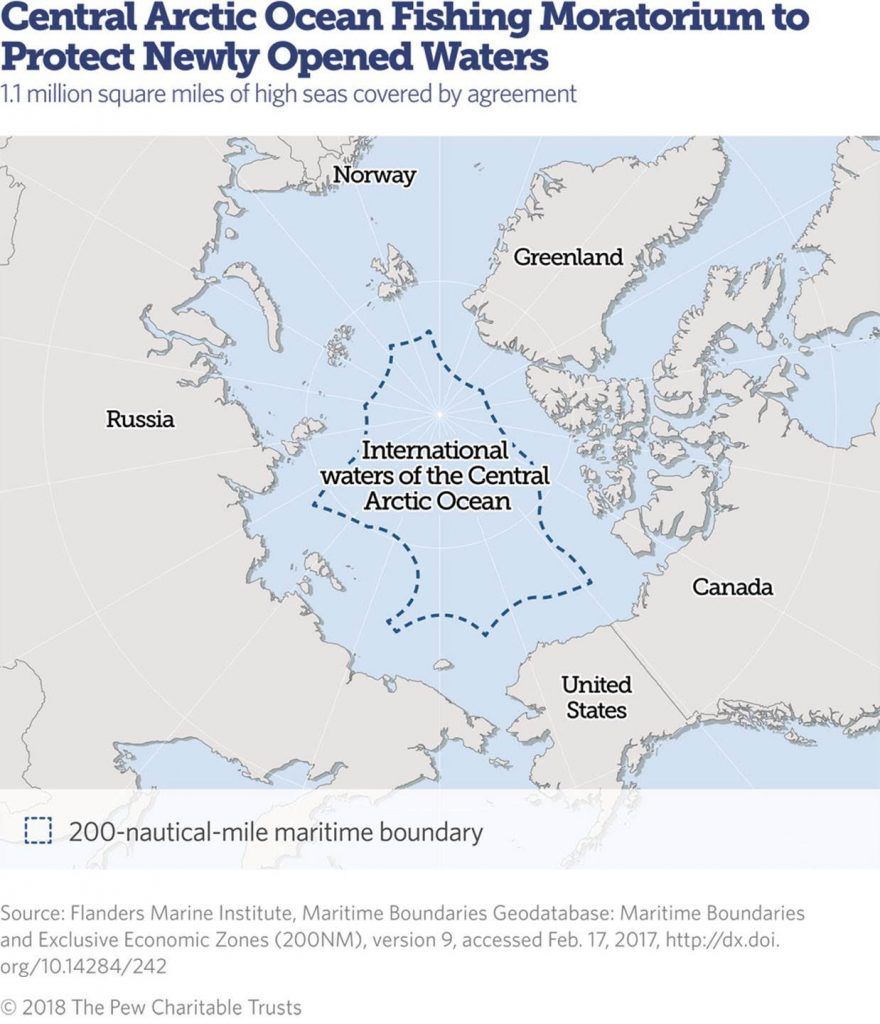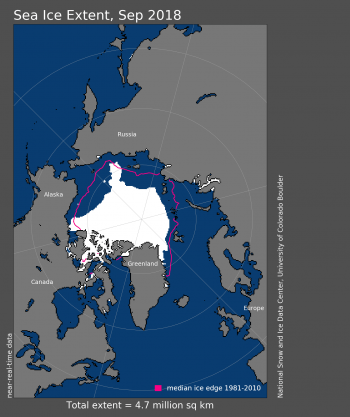Arctic says NO to unsustainable Commercial Fishing with new moratorium.
Steps have now been taken to prevent unsustainable fishing practices in the Arctic’s fragile and unchartered marine ecosystem.
Nine nations (the US, Russia, Canada, Norway, Denmark, Iceland, Japan, South Korea and China along with the EU) signed a new agreement banning commercial fishing across much of the Arctic after establishing the need to control the sustainability of commercial fishing practices that coincides with the necessary protection of the marine ecosystem in the area.
Polar scientists have reported a trend of decreasing summer ice cover and thickness in the last decade as the ice becomes thinner resulting from sunlight penetrating its surface. The melting ice caps led to high seas that are open to anyone under the international law. Without an agreement, fishing would be unregulated but not illegal to anyone who sets sail. This open vulnerability of the marine ecosystem sparked the need for laws to be put in place to examine and protect the vastly changing ecosystem. A joint program of scientific research has also been agreed between these nations to monitor changes in the ecosystem, including the abundance of species, habitat changes and the pressures facing climate change.
This effect of the ban is set not only to prevent the exploitation of fish, but to ensure that scientists are able to establish a baseline for “monitoring the health of the region’s marine ecosystem” (Ganey, 2018) before allowing commercial fisheries to expand their business to these new territories. It also aims to prevent any pollutions or potential damage caused by vessels that sail through.
With an expanding area, the Arctic is targeted for more business ventures in the future as commercial fisheries gain to broaden their profits. Climate changes are also causing the migration of fishes such as cod and halibut to the lower, warmer latitudes. This creates unsustainable fishing practices in traditional grounds, requiring fisherman to look elsewhere to conduct their business.
With the first steps taken to introduce legal protection to the vulnerable environment surrounding the Arctic, former US ambassador for oceans and fisheries, David Balton said the unprecedented agreement would “Change international oversight of the Arctic and help people living there.”
© Ocean Research & Conservation Ireland (ORCireland) and www.orcireland.ie , est. 2017. Unauthorized use and/or duplication of this material without express and written permission from this site’s author and/or owner is strictly prohibited. Excerpts and links may be used, provided that full and clear credit is given to Ocean Research & Conservation Ireland and www.orcireland.ie with appropriate and specific direction to the original content.
SHARE THIS ARTICLE
















